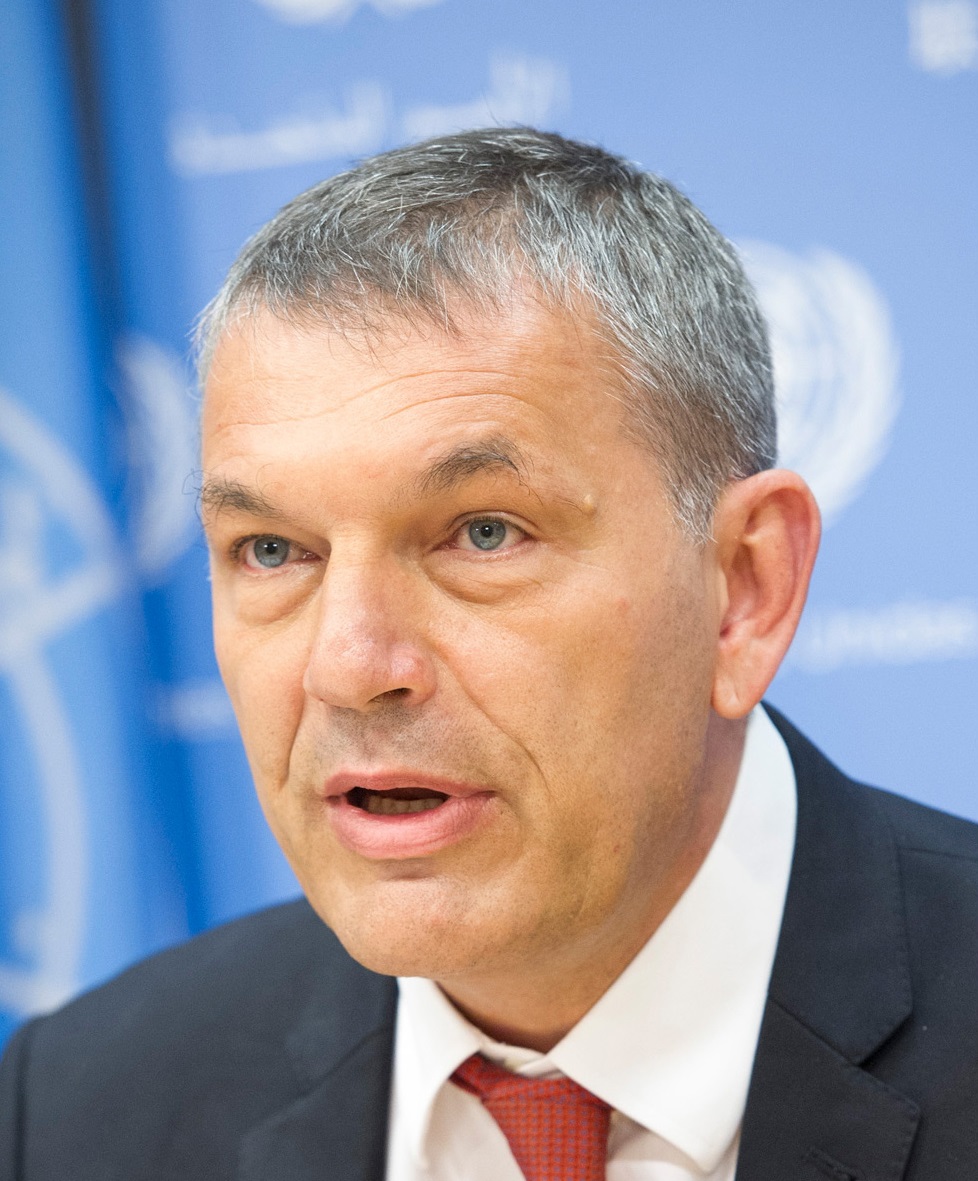LOC08:51
05:51 GMT
 UNRWA Chief Philippe Lazzarini
UNRWA Chief Philippe Lazzarini
NEW YORK, Oct 31 (KUNA) -- There is no place in the Gaza Strip due to the relentless bombardment of Israel (the occupying force), said head of the UN relief agency for Palestine Refugees (UNRWA) to a UNSC meeting.
Speaking to the UNSC emergency meeting on Israel-Palestine crisis Monday afternoon, the UNRWA Chief Philippe Lazzarini, said the level of destruction across Gaza "is unprecedented, the human tragedy unfolding under our watch is unbearable."
Despite half the population of Gaza being told to evacuate south by Israeli (occupation) authorities, significant numbers of Gazans have been killed as they sought sanctuary.
"I have said many times and I will say it again: no place is safe in Gaza," said the UNRWA chief.
This "forced displacement" has left more than 670,000 in overcrowded UNRWA schools and basements.
Lazzarini went on to note that nearly 70 percent of those reported killed are children and women: nearly 3,200 children have been killed in Gaza in three weeks, surpassing the number of children killed annually across the world's conflict zones since 2019.
"This cannot be 'collateral damage'," he stressed, adding that Israel is carrying out "collective punishment".
He outlined a dire humanitarian situation in Gaza Strip, with medicines, food, water and fuel running out, adding that panic pushed thousands of desperate people to UNRWA aid warehouse and distribution centers.
"A further breakdown in civil order will make it extremely difficult, if not impossible, for the largest UN agency in Gaza to continue operating. It will also make it impossible to bring in convoys," he stressed.
Lazzarini highlighted the deep impact of the crisis on the staff of his agency -- 64 of whom have been killed since October seventh -- but continue to valiantly discharge their humanitarian duties faced with overwhelming challenges and having lost relatives and friends
"My UNRWA colleagues are the only glimmer of hope for the entire Gaza Strip, a ray of light as humanity sinks into its darkest hour," he said.
The head of UNRWA also emphasized that the "handful of convoys" being allowed through the Rafah crossing is "nothing compared to the needs" of over two million people trapped in the enclave.
"The system in place to allow aid into Gaza is geared to fail unless there is political will to make the flow of supplies meaningful, matching the unprecedented humanitarian needs," he stressed.
Also in his briefing, he reiterated that while the focus is on Gaza, "another crisis is unfolding in the West Bank including East Jerusalem."
Palestinian fatalities this year are the highest since the UN started to keep records in 2005, he said, noting at least 115 Palestinians have been killed since October seventh, including 33 children.
The movement restrictions imposed across the West Bank are impacting UNRWA's services, including schools and health centers, he said, noting also that the situation on the Israeli-Lebanese border is getting worse, with regular exchanges of fire and civilian casualties reported.
On her part, Catherine Russell -- Executive Director of the UN Children's Fund (UNICEF) -- said the "true cost" of the latest escalation would be measured in children's lives.
"More than 420 children are being killed or injured in Gaza each day, a number which should shake each of us to our core," she said.
WHO in Gaza reported 34 attacks against health care facilities, including 21 hospitals and 12 of Gaza's 35 hospitals can no longer function, she said.
At least 221 schools and more than 177,000 housing units have been damaged or destroyed and clean water is quickly running out, with 55 percent of related infrastructure requiring repairs or rehabilitation.
Most concerning is the current siege conditions and the "highly dangerous circumstances" under which staff are operating, she said.
The Security Council should also prioritize what was now a worsening displacement crisis, with more than 1.4 million people in Gaza, the majority of whom are children, now displaced.
"We must have humanitarian access through all crossing points into the Gaza Strip, through safe and efficient supply routes," she said, also calling for a reversal of measures taken by Israel (the occupation force) to cut electricity, food, water and fuel from entering the enclave from Israel.
Lisa Doughten, Director of Resource Mobilization at the UN Office for Coordination of Humanitarian Affairs (OCHA), said the events that have unfolded since October seventh have been "nothing short of devastating and heartbreaking."
Doughten added that the situation for the more than two million people trapped in the Gaza Strip is simply "catastrophic."
"They have now endured a siege and continuous bombardment for 23 days. According to the Ministry of Health in Gaza, more than 8,000 people have been killed [...] tens of thousands more have been injured," she added. (end)
ast.gta